Recording Connection mentor Shamel Hughes: The power of self-branding in the music industry
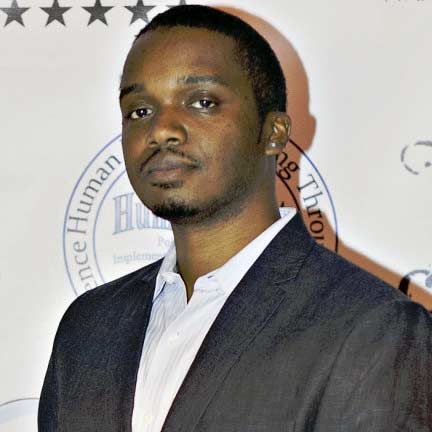
Recording Connection mentor Shamel Hughes
Believe it or not, there’s a difference between being a
good audio engineer and being a
successful one. In our experience, the most successful producer/engineers aren’t the ones who just talented and skilled; they are the ones who think like entrepreneurs, who see themselves as being in business for themselves. That’s exactly what makes Recording Connection mentor
Shamel Hughes such a wellspring of wisdom for our students, and why his own story is such an important object lesson. Teaching out of
Oz Studios in the heart of Manhattan, Shamel has come from being a struggling kid from Brooklyn to building a name for himself as one of New York’s more in-demand freelance engineers, working with artists like Elle Varner, K. Michelle, Musiq Soulchild, Busta Rhymes and others.
How did he do it?
Branding. Through hard work, smart decisions and a go-getter entrepreneurial attitude, Shamel has worked steadily and tirelessly to turn his own name into a recognizable brand.
Shamel’s journey into audio, interestingly enough, came from a love for poetry.
“I used to read a lot of poetry when I was a kid,” he says.
“I used to rap, used to write rhymes. I used to DJ, I started DJing when I was around 15 years old. I started making these cassettes. I was an entrepreneur at a young age…When I was on the streets, I was selling mix-tapes, I was making a lot of money at a young age…I got really creative when CD’s started hitting the market. I started building computers to actually duplicate CD-ROM’s, which wasn’t really available unless you really had the money to do so…The technology wasn’t accessible at the time for people to do it. It was just me and the bootleggers that were selling mix-tapes that were novel or original…I was already making money and doing things on my own as an entrepreneur.”
After taking classes at the Institute of Audio Research, Shamel’s first break came with an opportunity to intern for a year at Quad Studios, one of the most prestigious recording studios in New York City.
“I became an assistant within that year,” he says,
“because I was in the middle of my game, it still wasn’t really good money. I had an audio job [in] retail…I was still learning new gear, learning about products and different equipment so I could be able to keep the internship and not worry about money. I just had enough to eat, pay my phone bill, and get the necessities. That was fine. I didn’t care.”
Shamel’s hard work at Quad ended up opening other doors for him, including the opportunity to work on tour with Busta Rhymes.
“One of the engineers I worked with at Quad was like, he didn’t want to be on the road with Busta anymore,” he says.
“Because of my personality and how I dealt with clients and things, he thought I was a great candidate to work with him. I was able to be on the road with Busta for a year. That turned out very cool. I met a lot of people and made a lot of connections.”
But for Shamel, something was still missing, which is what ultimately made him decide to turn freelance—and that meant building his name as a brand.
“For the past 10 years or more I worked for everyone else,” he says.
“I wanted a different respect level. So I figured…the only way they’re going to respect [me] as the person I want them to respect me as is to go into business with myself. Still do what I do, as a recording engineer, still be great at just doing what I do, but now I can do it on my own time…I don’t want to be given a rate, I want to give my rate, and I want them to respect me for it. I want them to want to work with me because I’ve got my own thing going on.”
Smartly, Shamel had already laid the groundwork for branding himself while working as an assistant at Quad.
“I came and ensured the client was welcomed, made sure they would feel comfortable,” he says.
“I made sure I always knew the client on a first name basis…A lot of times, then, clients came back to the studio they always requested me in their sessions…I did that so I could take that brand, so people would know as I start to develop my skill set, as I get deeper in my career, as they’re still working as an artist, producers, or whatever, they would know who I am.”
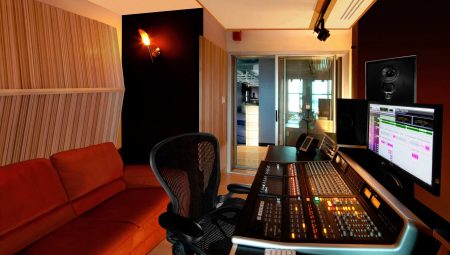
Control Room in Oz Studios
Of course, it wasn’t just name recognition for Shamel: he also honed his craft so he’d actually have something to offer, shadowing engineers he respected and adapting their techniques into his own style.
“I made sure I made my engineering was like a brand,” he says.
“You have to be compensated for your skill set. I made sure I was always good, or I was always on top, or I was always the leading edge when it came to engineering…I was trying to figure out how to be Tony Maserati how to be Dave Pensado. I was trying to learn how to get to those guys. I was pretty much saying to myself, ‘I want their job.’ If I’m not working with Beyoncé and Taylor Swift, I am not where I need to be. That’s the kind of artists and clients I want to take.”
Being in business for himself has paid off.
“I was making a killing,” he says.
“I was doing a lot of business because my rate was very fair at the time. I worked like that for a while until I noticed my skill set evolving and improving, and my project list and my client list started to come in a lot more heavy hitting, a lot deeper. .. I started being more confident in my brand as a business and a sound, as an engineer. [So] I started charging more, which, again, changes the dynamic of business because clients will fall away or not want to work with you because you are now becoming too pricey for them. That’s the nature of the business. I learned that making those changes is necessary if you want to change the circle of clientele you want to work with.”
These days, Shamel has his hands in a lot of projects as a producer, engineer and mixing engineer for a wide range of clients. He also started his own multimedia company, and along the way, discovered he loves to teach which is why he’s mentoring for the Recording Connection.
“As people, we should always be teaching others to do better,” he says.
“That changes people’s lives. I like that. That’s a satisfying thing….the aspect of me being able to do what I love and giving back to others…that’s a full circle…It’s not hard, it’s not work. It’s actually my passion. It’s audio. I live for that.”
Right now, Shamel says he’s particularly impressed with several of his Recording Connection students.
“Nicholas Rodriguez and Edson Avelar…those two are very sharp… I just sent them a mass text just now seeing if any of them were available at 5pm today to do a session. Edson is available and he is going to be there to assist me.”
He also mentions a female apprentice, Felicia Artis:
“She’s very cool and sharp, she’s collected, very ready,” he says.
She gets the idea of the details, she is very responsive.”
As a mentor, it’s apparent that Shamel sees his students as future colleagues and trains them accordingly.
“What’s so cool about Recording Connection is it actually allows me to groom or train the individual that I think is sharp to have an opportunity to succeed because of their attitude and their thought process,” he says.
“I can actually give them something more and teach them more as an apprentice…because I want them to have a business doing it. I want them to be creative doing it. I want them to succeed.”
Learn more about Shamel Hughes at
shamuzik.com.
* * * * *
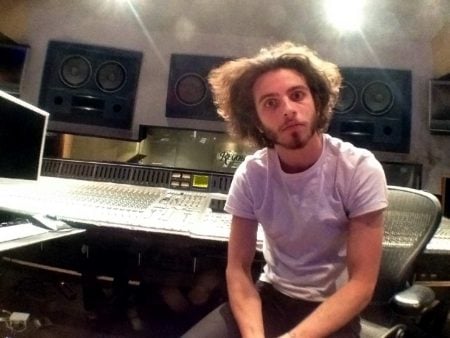
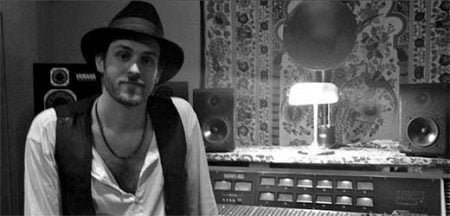
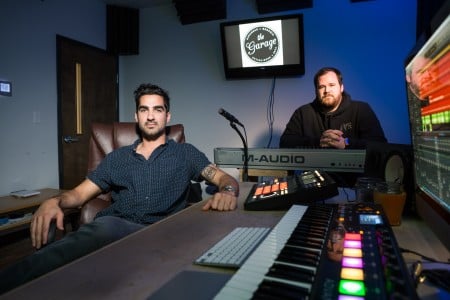
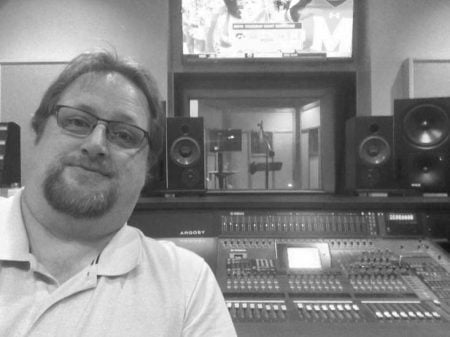 Recording Connection apprentice Shawn Hoefer of Baton Rouge, LA is following through with his passion for audio by getting solid audio skills with mentor Devon Kirkpatrick at Sockit Studio! The husband, father and volunteer firefighter says, “I started getting into doing voice over work and wanted to learn more (as I always do) so the technical side of Audio started to appeal to me….Now I’m hooked and taking the next steps toward what I hope will be a very rewarding entirely new career!” We say, go, go, go Shawn! Follow your passion!
Recording Connection apprentice Shawn Hoefer of Baton Rouge, LA is following through with his passion for audio by getting solid audio skills with mentor Devon Kirkpatrick at Sockit Studio! The husband, father and volunteer firefighter says, “I started getting into doing voice over work and wanted to learn more (as I always do) so the technical side of Audio started to appeal to me….Now I’m hooked and taking the next steps toward what I hope will be a very rewarding entirely new career!” We say, go, go, go Shawn! Follow your passion!





